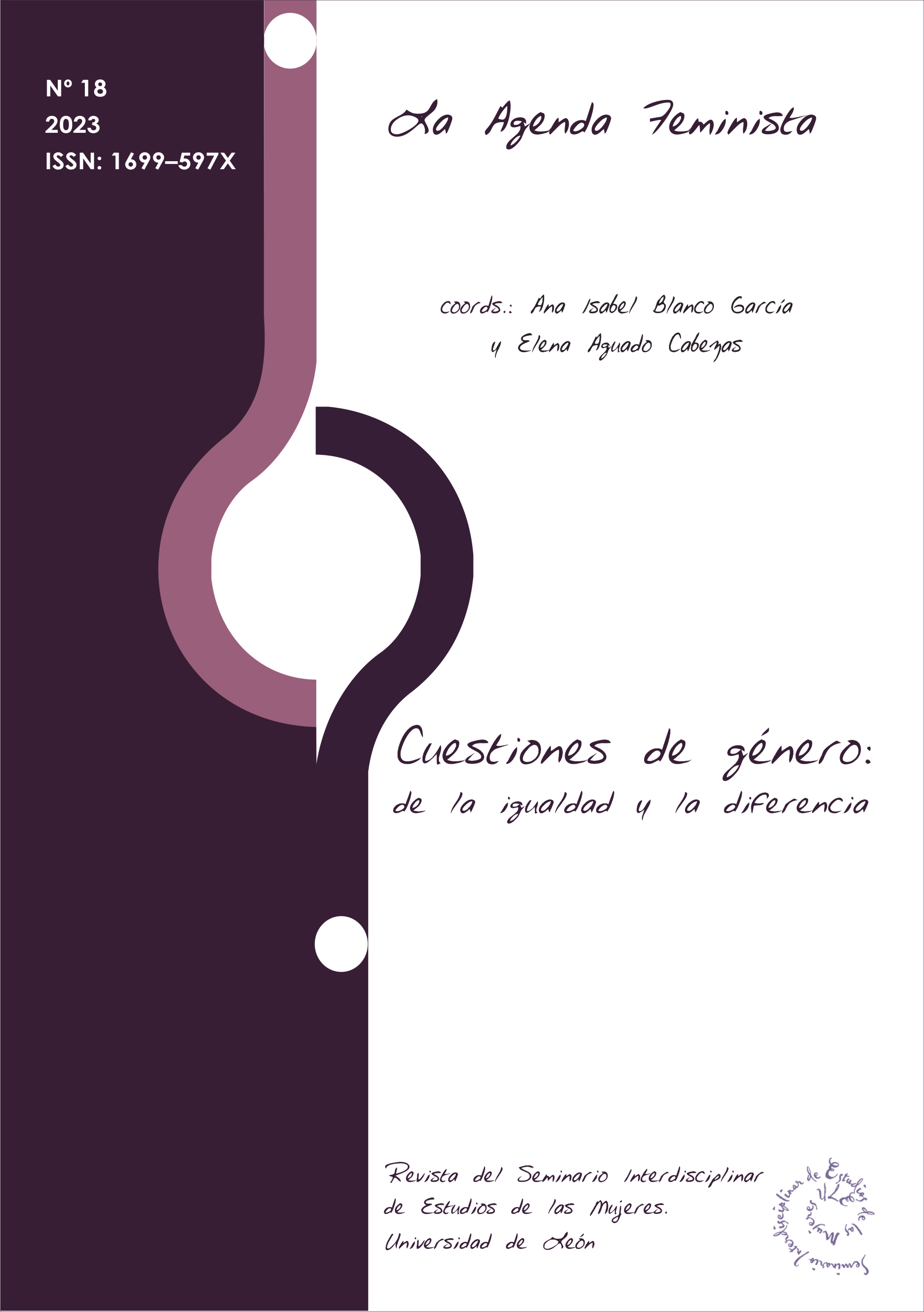Thérèse of Lisieux: enjoying until death
DOI:
https://doi.org/10.18002/cg.i18.7371Keywords:
nun, mother, father, body, illness and deathAbstract
In this article, I note that religion and the act of joining the convent mask a sexuality and an eroticism that are a source of great guilt, as the incestuous desire for the father is sublimated in the figure of Christ. In the case of Thérèse de Lisieux, where unconscious guilt generates such desire, a masochistic personality is created, that is given to suffering. This will lead her to self-destruction, and ultimately death. Moreover, the death of her mother when she was four years old would bequeath her a psyche that is consumed by a phantasy, an Other who would persecute her throughout her life; and, just as in the case of her father, she ends up sublimating her desire in the figure of the Virgin.
Downloads
Métricas alternativas
References
Freud, Sigmund (1970-1988) : Inhibition, symptôme et angoisse (1926 pour l’édition allemande). París: PUF.
Freud, Sigmund (2014) : Inhibition, symptôme et angoisse. Paris: Payot.
Freud, Sigmund (1905): “Trois essais sur la différence sexuelle ; fragment d´une analyse d´hystérie (Dora) et d´autres textes”. En : Œuvres Complètes Psychanalyse, vol. VI, 1902-1905. Paris: PUF.
Freud, Sigmund (1913) Totem y Tabou. Viene: Beacon Press.
Horney, Karen (1990): La sexualidad femenina. Madrid: Alianza.
Klein, Melanie (1987) El psicoanálisis de niños 2. Barcelona: Paidós.
Kristeva, Julia (1974) Histoires d´amour. Paris: Denoël.
Kristeva, Julia (1988) Étrangers à nous même. Paris: Folio.
Kristeva, Julia (2008) Thérèse mon amour. Paris: Fayard.
Lacan, Jacques (1972) L´Étourdit. Paris: Psychanalyse et Société.
Lacan, Jacques (1975) Séminaire XXII : RSI. Paris: Seuil.
Lacan, Jacques (1997) Hors sujet, LGT.
Lacan, Jacques (1998) Seminario 4: la relación de objeto. 1956-1957. Argentina: Paidós.
Lacan, Jacques (2013) Eros littérature et Philosophie. Paris: Grasset-IMEC.
Montrelay, Michelle. (1977) L´Ombre et le Nom sur la féminité. Paris: Minuit.
Rasy, Elisabetta (1987) : La Première extase, Paris: Rivages.
Sainte Thérèse de Lisieux (2015) : Histoire d´une âme. Manuscrits autobiographiques. Paris : Emmanuel.
Winnicot, Donnald. (1997) Realidad y juego. Barcelona: Gedisa.
Published
How to Cite
Issue
Section
License
Copyright (c) 2023 María José Palma Borrego

This work is licensed under a Creative Commons Attribution-NonCommercial-ShareAlike 4.0 International License.
L@s autores/as que publican en esta revista están de acuerdo con los siguientes términos:
1. L@s autores/as ceden de forma no exclusiva los derechos de explotación (reproducción, distribución, comunicación pública, transformación) a la Universidad de León, por lo que pueden establecer, por separado, acuerdos adicionales para la distribución no exclusiva de la versión de la obra publicada en la revista (por ejemplo, alojarlo en un repositorio institucional o publicarlo en un libro), con un reconocimiento de su publicación inicial en esta revista.
2. Este trabajo se encuentra bajo la Creative Commons Attribution-NonCommercial-ShareAlike 4.0 International License. Puede consultarse desde aquí la versión informativa y el texto legal de la licencia.
3. Se permite y se anima a l@s autores/as a difundir electrónicamente las versiones pre-print (versión antes de ser evaluada) y/o post-print (versión evaluada y aceptada para su publicación) de sus obras antes de su publicación, ya que favorece su circulación y difusión más temprana y con ello un posible aumento en su citación y alcance entre la comunidad académica.
Cuestiones de Género utiliza exclusivamente la licencia Atribución-NoComercial-CompartirIgual 4.0 Internacional (CC BY- NC-SA 4.0).
Bajo los siguientes términos:
- Atribución: Usted debe dar crédito de manera adecuada , brindar un enlace a la licencia, e indicar si se han realizado cambios . Puede hacerlo en cualquier forma razonable, pero no de forma tal que sugiera que usted o su uso tienen el apoyo de la licenciante.
- No Comercial: Usted no puede hacer uso del material con propósitos comerciales .
- Compartir Igual: Si remezcla, transforma o crea a partir del material, debe distribuir su contribución bajo la la misma licencia del original. cualquier uso permitido por la licencia.
No hay restricciones adicionales — No puede aplicar términos legales ni medidas tecnológicas que restrinjan legalmente a otras a hacer
L@s autores/as pueden consultar los derechos de copyright y las condiciones de autoarchivo en el directorio Dulcinea.











